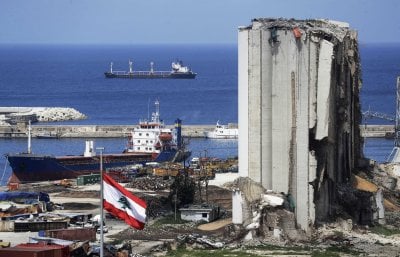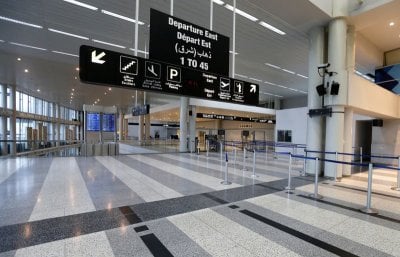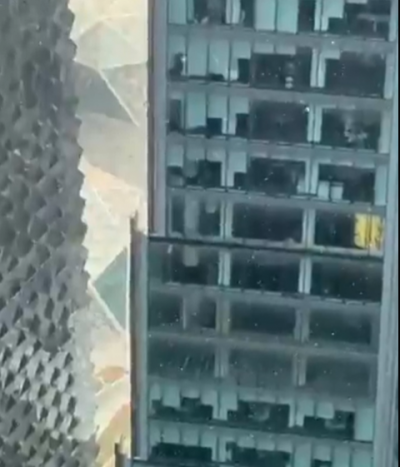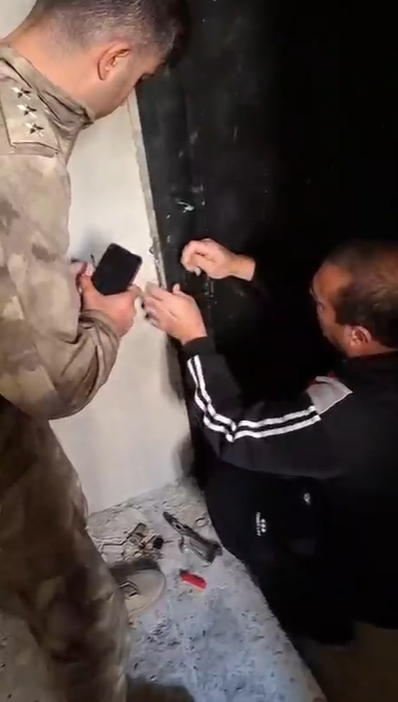“Lebanon Debate” – Abdallah Kameh
A heightened state of alert is reigning over Lebanon, with concerns mounting that the conflict in the south may spill over into other Lebanese territories and amid warning directed to certain politicians.
If the war does expand, it could push the situation to the brink of a precipice with no clear resolution.
These politicians have their own narrative to the “power balance”: they believe that one party must be subdued so that another can assert its conditions.
In this context, diplomats are sending messages cautioning that Lebanon will suffer is the war expands. Yet neglect, at the same time, Hezbollah s capabilities, that can break or make the balance itself, a power even acknowledged by Israelis.
On another hand, there's a counter opinion, albeit null, suggesting that there are many possibilities for a wider conflict in Lebanon, to the point where these possibilities are even needed for a next step, to bring everyone to a certain point.
This might prompt mediators to expedite their efforts, increasing the chances of finding a solution.
Meanwhile, the current situation indicates that both the resistance and the enemy, are heading towards an escalation despite the appearance of a calculated course of action. Moreover, the conflict will become that of “an eye for an eye”, and both the resistance and the enemy will retaliate according to the “weight” of a person.
However, no one can guarantee how things will be during the following days, and the repercussions of these attacks.
This is the reason behind the warnings and alerts of the diplomats present in Beirut.
Pressure on the government and Hezbollah
The warnings also serve as an attempt to intimidate the Lebanese government or negotiators, aiming to compel them to yield or to exert pressure on the resistance to alter its positions. Consequently, it becomes apparent that certain countries are engaging with the Lebanese government solely in consideration of its relationship with Hezbollah and its role in the south This perspective has gained traction among opponents of Hezbollah, who stress that any potential spillover of the conflict will impact Lebanon as a whole, influenced by the government's stance.
However, multiple security and political parties agree that Israel is attempting to neutralize certain areas, believing this action could exacerbate internal conflict in Lebanon.
Israel is clearly betting on an internal conflict between the resistance and the other parties to increase its chances in the war.
Despite this, the spill over of the conflict depends on a few factors, while also expressing Israel’s intentions for geographic escalation, reaching certain areas.
However, Israel’s intentions clash with the resistance ‘s main goal, as the later operates according to the “an attack for an attack”.
Hence it seems that an Israeli escalation will depend on the attacks launched, especially concerning the Hermes drones, as its aerial domination is on the line now causing confusion among the government, military, and occupiers alike.
They had always depended on this superiority, but as it is gradually diminishing, big repercussions are on the way.
Israel frightened of Ground Warfare
The escalation from the enemy's side, if not complemented by a ground operation, will fail to serve its purpose. This poses a major problem for the enemy. Studies issued by prominent Israeli research centers do not attribute military superiority capabilities to the army. These studies focus on the probability of a war erupting in the northern region and the potential damage it could inflict based on Hezbollah's current capabilities. Consequently, we assess that Israel's current military positioning in the northern territories is defensive rather than offensive, as has been the case since October 8th. I shall add that the positioning of soldiers within the designated geographic area for military operations (i.e., within a range of 7 to 10 kilometers) indicates a clear shift in roles on the part of Tel Aviv. The latter switched to a military concealment approach, similar to that of guerilla warfare. Meanwhile, Hezbollah operated under advantageous conditions and enjoys greater comfort on both sides of the border, despite Israel’s reliance on border marches to scour the area. On the contrary, Hezbollah consistently asserts its presence along the border strip and its determination to maintain this presence. It refuses to retreat even a single meter as per any "arrangements for forthcoming scenarios”. This is the best expression of the party's current position on the front. Furthermore, Hezbollah asserts its ability to advance on land towards Israeli sites at its discretion, regardless of circumstances. However, it currently refrains from doing so, utilizing this capability as a form of "deterrence" against Israel. In this context, a vulnerable Israeli spot has recently puzzled Israeli commentators and the Hebrew media. This vulnerability revolves around the perception that the military is afraid to engage in any ground battle with Hezbollah or is actively avoiding such scenarios. Despite the successive threats from senior Israeli commanders, the situation on the ground suggests that Israeli soldiers are effectively retreating from the border area and proceeding with caution. Unlike in previous wars, Israel has not taken any overt actions indicating preparations for ground operations at the border. However, there is growing consideration that adopting such a strategy at this time could have unfavorable consequences for Israel. In contrast, Hezbollah operates with significant liberty along the border strip. Military media have recently aired videos showing fighters near the Israeli "Ramya" site in the western sector of the south, launching attacks from close proximity. Similar footage has been released previously, showing attacks on another site from a distance of approximately 300 meters away.
Based on this, we can understand that Israel is intensifying its efforts to expand airstrikes to compensate for its limited ground capabilities, which it aspires to enhance. However, in practice, there is no change in the current dynamics, at least from Israel's perspective, without the implementation of ground operations, something that Hezbollah appears to be eagerly waiting for.
هجوم بَرّي... "حزب الله" ينتظر بفارغ الصبر!
تــابــــع كــل الأخــبـــــار.
إشترك بقناتنا على واتساب

Follow: Lebanon Debate News





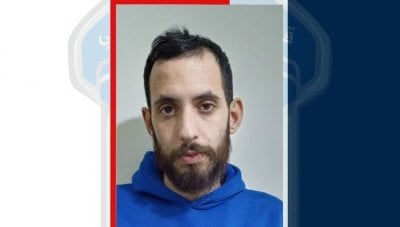

 الـــمــــزيــــــــــد
الـــمــــزيــــــــــد